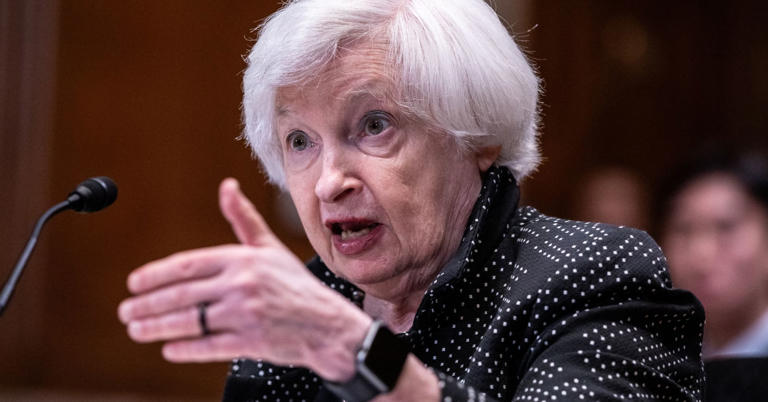Yellen emphasized the importance of maintaining a stable ratio of national debt relative to the size of the economy as a key determinant of its manageability. This metric, known as the debt-to-GDP ratio, is crucial because it indicates the government’s ability to service its debt obligations without impairing economic growth or financial stability. Currently, the U.S. faces a significant debt burden, with the public share of the national debt nearing $27.6 trillion, equivalent to approximately 97% of GDP. Yellen acknowledged projections suggesting this ratio could exceed 100% in the near future if current fiscal policies persist.
The Treasury Secretary underscored that while the nominal size of the debt is important, the real economic burden lies in the interest costs incurred. In fiscal year 2024 alone, the U.S. government spent a staggering $601 billion on net interest payments, surpassing expenditures on critical sectors such as healthcare, defense, and education. This highlights the substantial financial commitment required to service the debt, underscoring the necessity of prudent fiscal management to prevent interest costs from overwhelming the federal budget.
Yellen expressed confidence in President Joe Biden’s fiscal strategy to address these challenges. Biden’s proposed budget includes ambitious plans for $3 trillion in deficit reduction over the next decade. This strategy aims not only to stabilize the debt-to-income ratio but also to mitigate the interest burden associated with servicing the national debt. By reducing the budget deficit and implementing targeted fiscal policies, the administration seeks to ensure sustainable economic growth while addressing long-term fiscal obligations.
On the monetary policy front, Yellen refrained from commenting on recent actions by the Federal Reserve, where she previously served as Chair. The Fed has maintained higher benchmark interest rates despite easing inflationary pressures, signaling a cautious approach to policy normalization. The central bank’s decision reflects its mandate to promote maximum employment and stable prices while carefully monitoring economic indicators, including inflation trends and financial market conditions.
Yellen’s remarks underscore the delicate balance required in managing the national debt, emphasizing the need for a comprehensive and strategic approach to fiscal policy. This approach includes prudent spending, revenue generation, and debt management strategies aimed at preserving economic stability and fostering sustainable growth over the long term. As the U.S. economy continues to navigate uncertainties, effective management of the national debt remains a critical priority to safeguard fiscal health and ensure resilience against future economic challenges.
